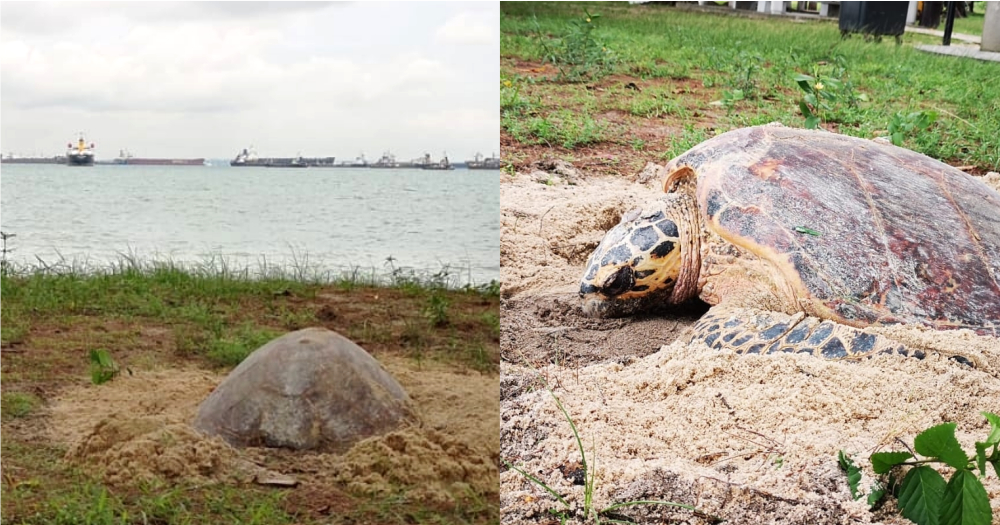May 23 is World Turtle Day and Singapore has one special visitor today.
One Hawksbill turtle has arrived on our shores at East Coast Park to lay eggs in the afternoon.
If you are in the vicinity wearing mask, you could have easily missed this gentle giant:
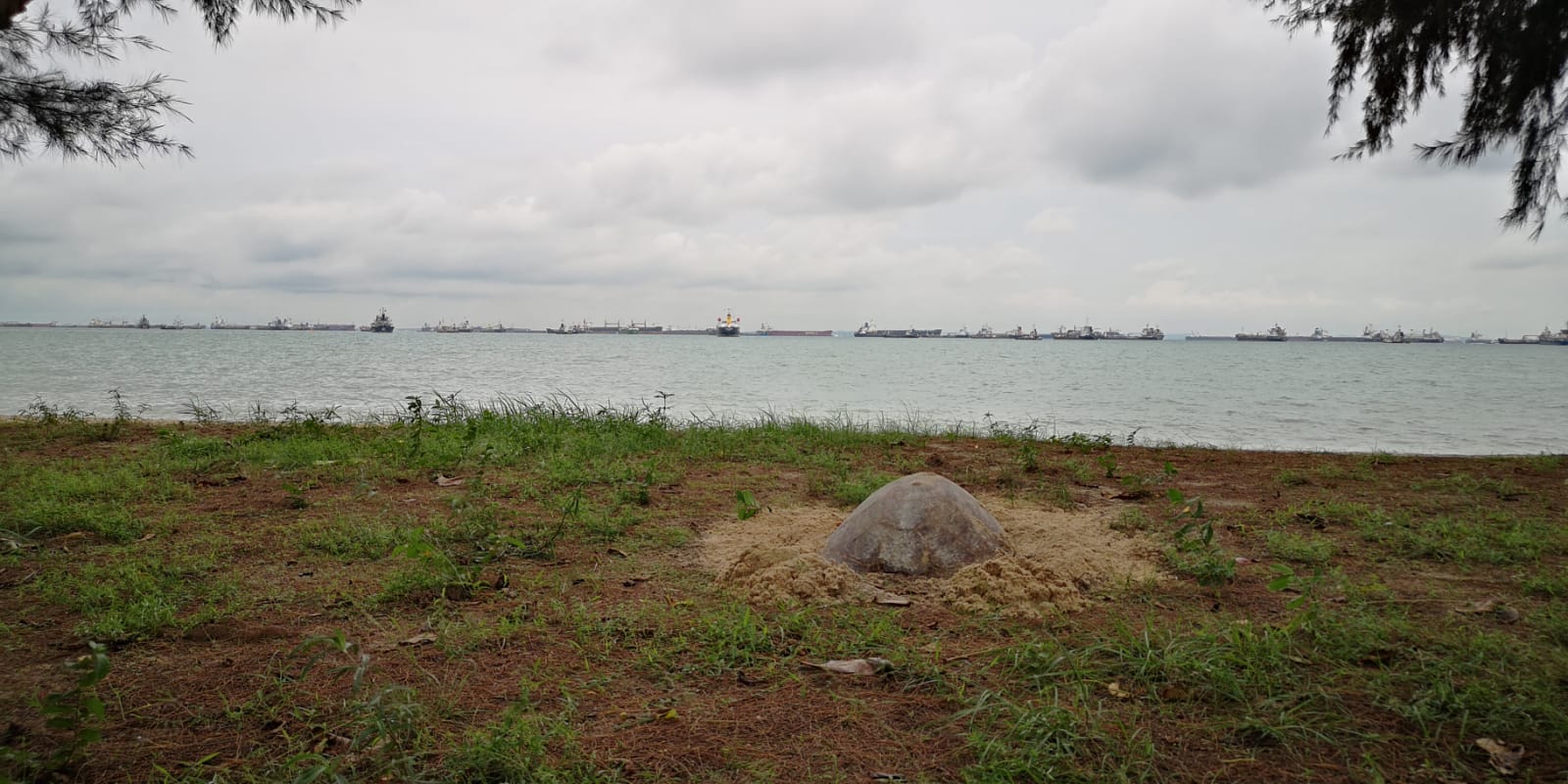 Photo courtesy of NParks.
Photo courtesy of NParks.
It's well disguised as a rock, doing this serious business discreetly.
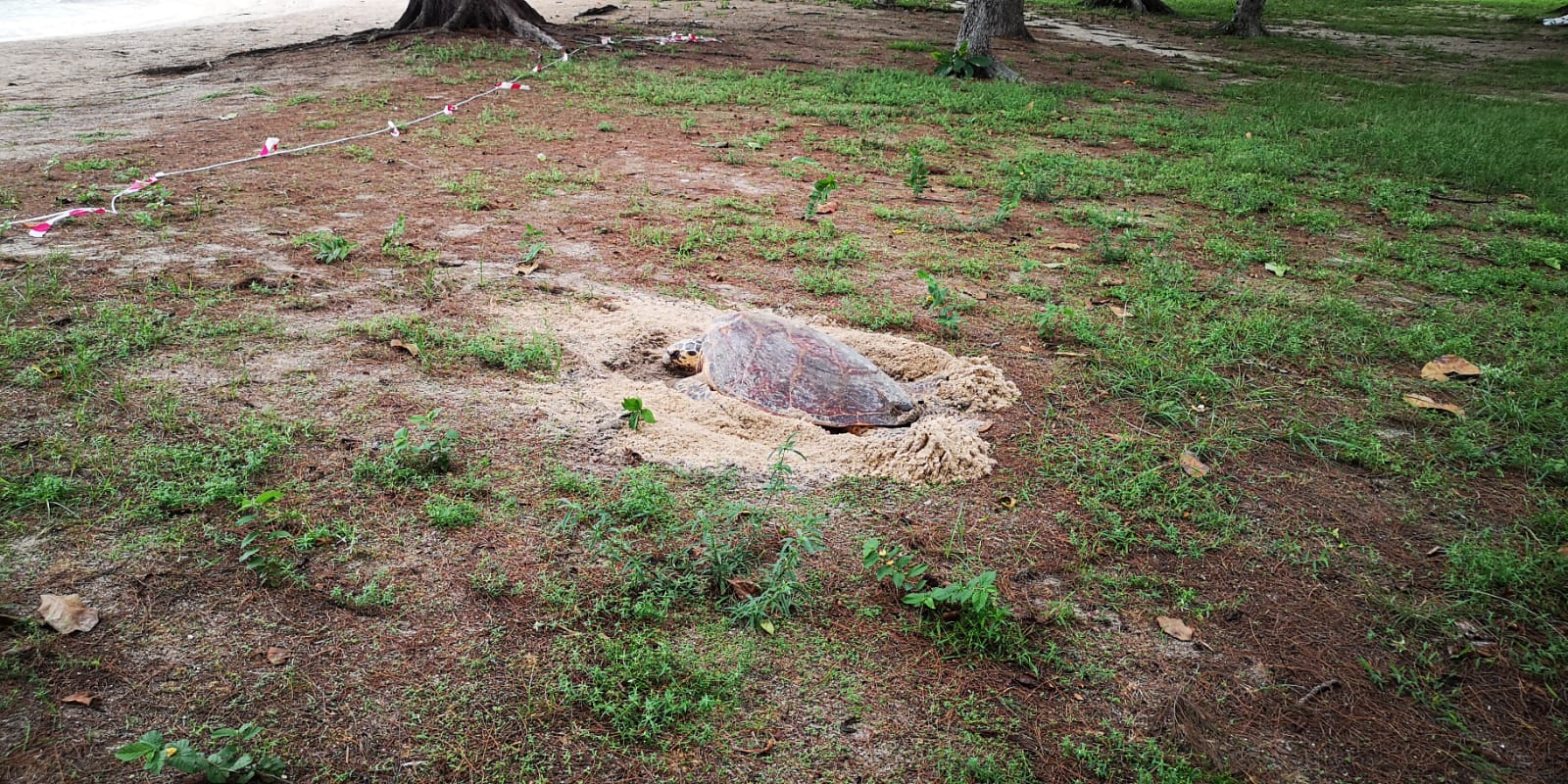 Photo courtesy of NParks.
Photo courtesy of NParks.
Critically endangered hawksbill turtles regularly sighted in Singapore
Hawksbill turtles are critically endangered and Singapore is lucky enough to host them at our shores every year.
Hawksbill turtles are one of two species of marine turtles that can be found on our shores, and the individuals may visit the same site to nest every few years, according to NParks.
They can be found in the tropical waters of the Atlantic, Pacific and Indian Oceans, and they prefer shallow waters with coral reefs.
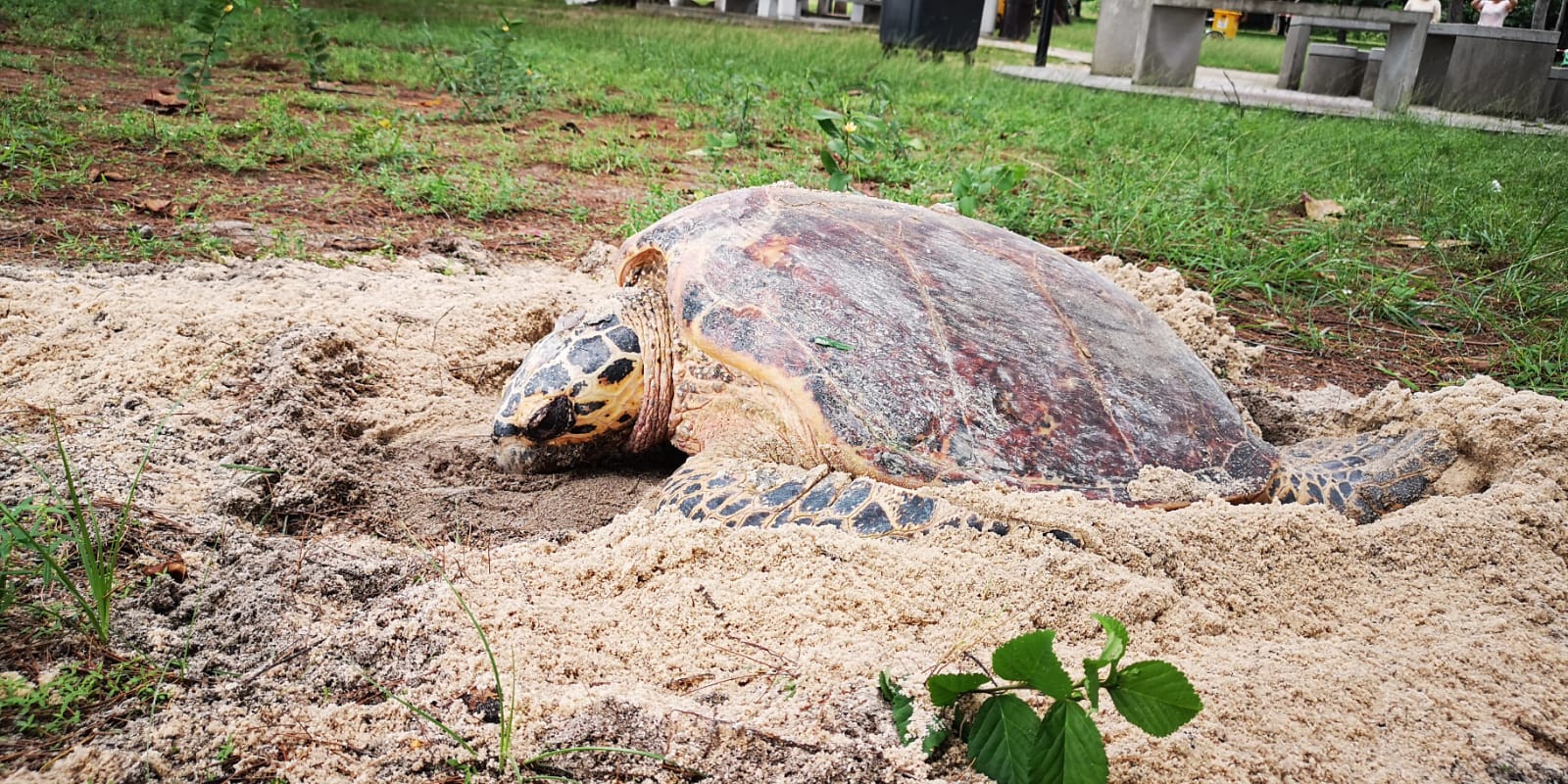 Photo courtesy of NParks.
Photo courtesy of NParks.
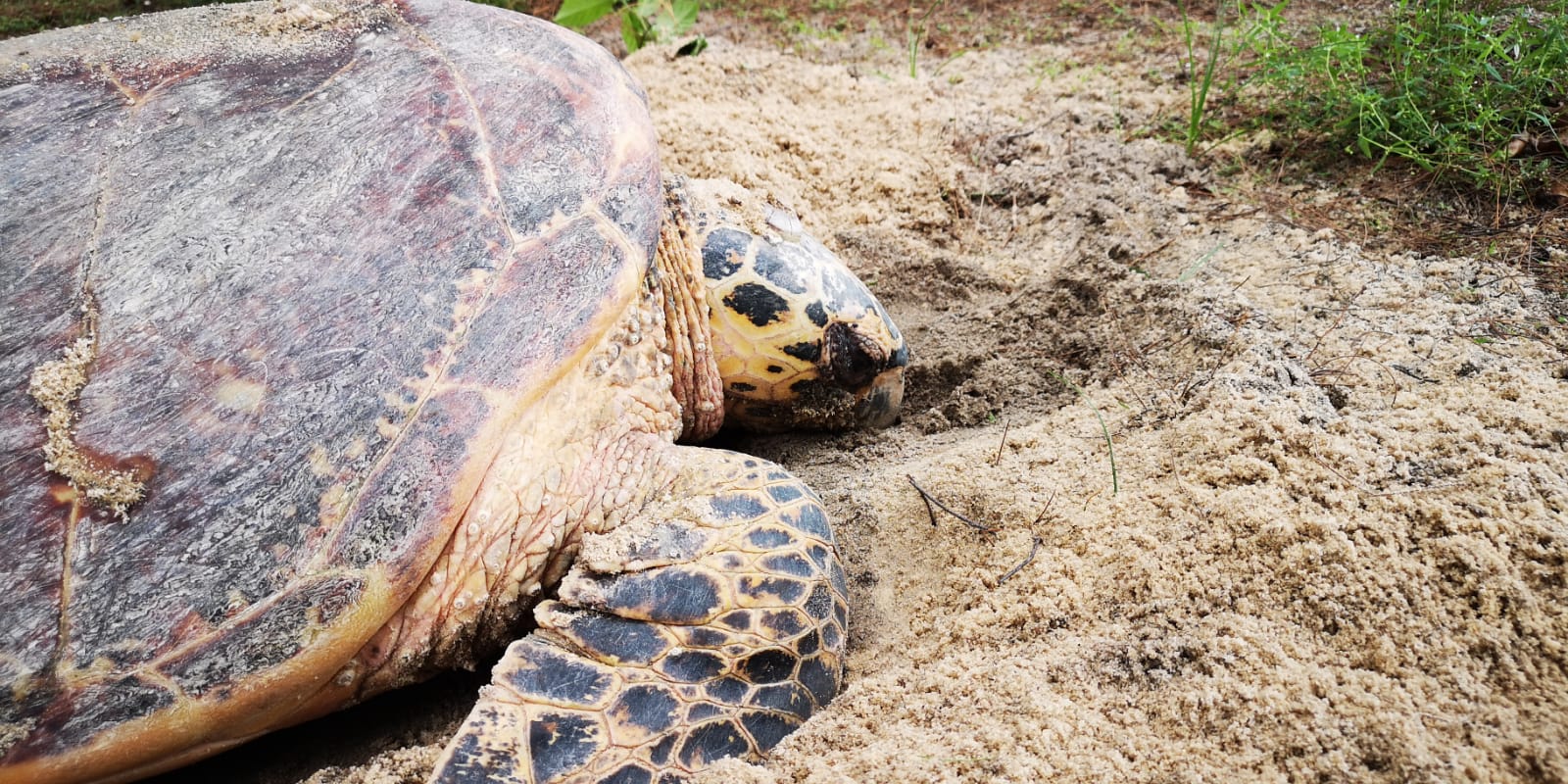 Photo courtesy of NParks.
Photo courtesy of NParks.
Lays up to 200 eggs but the survival rate is low
The female Hawksbill turtles usually lay eggs on sandy beaches and can lay up to 200 eggs each time.
Hawksbill turtles have a lifespan of 30 to 50 years.
However, the survival rate of a hatchling is extremely low, as only one in a thousand hatchlings make it to adulthood.
The eggs usually hatch after two months and the hatchlings will head for the open sea.
The journey in the open sea is a treacherous one as they face predators like shorebirds and crabs.
Besides natural predation, they are also threatened by poachers and sea pollutions such as abandoned fishing nets and plastic waste.
NParks told Mothership that the mummy turtle spent more than two hours at East Coast Park this afternoon.
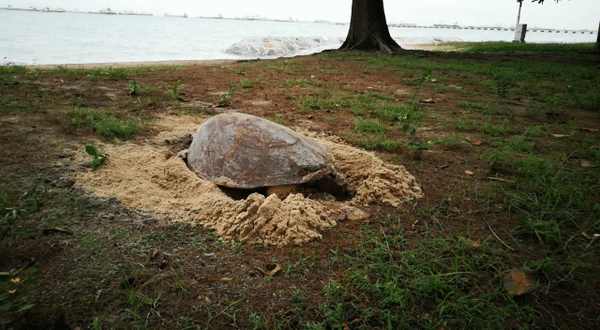 Video courtesy of NParks.
Video courtesy of NParks.
Here are some traces that it left behind when it headed out for the sea after completing its mission.
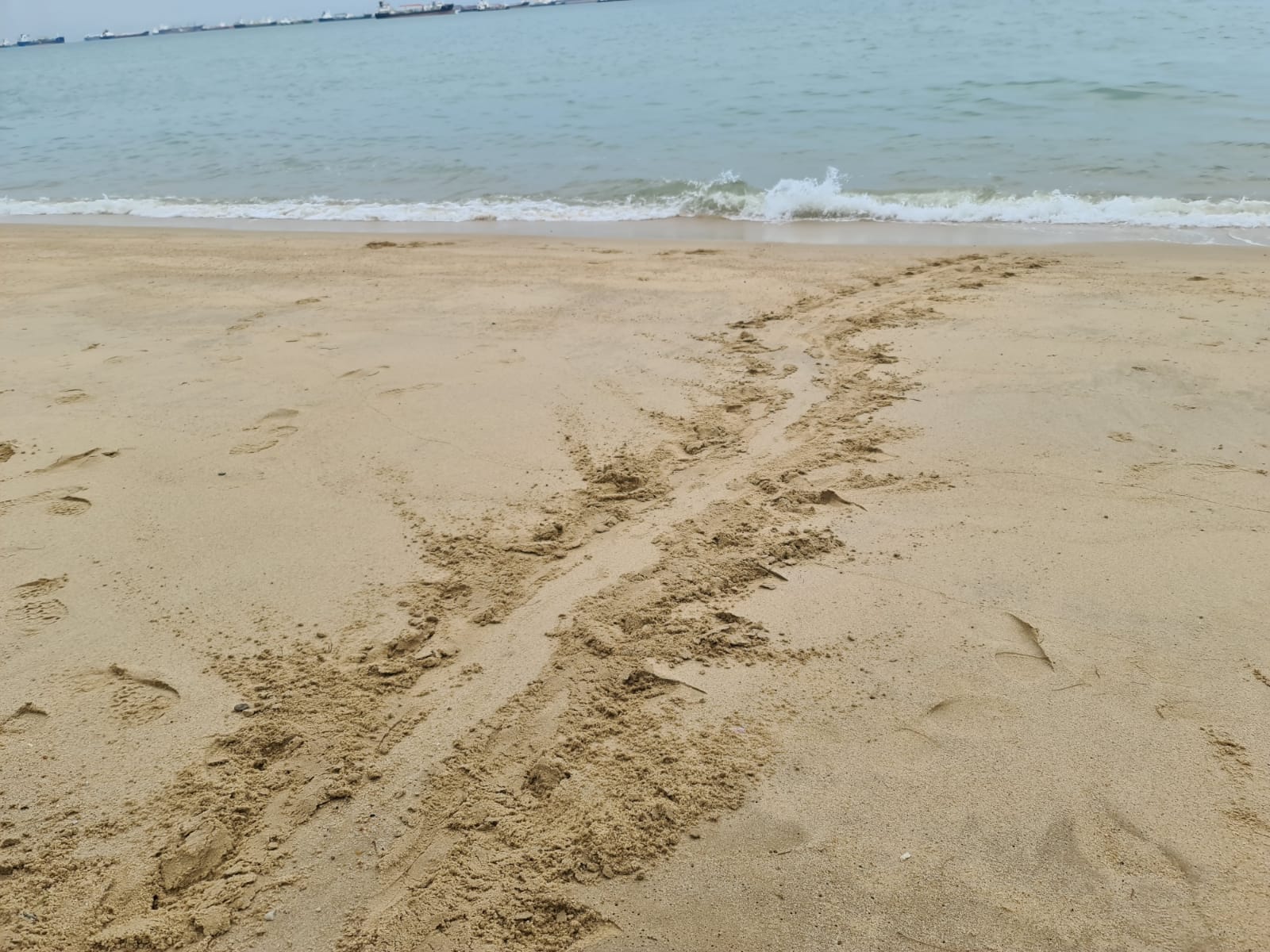 Photo courtesy of NParks.
Photo courtesy of NParks.
What do you do when you see a nesting turtle?
Here's an advisory from NParks if you ever encounter a nesting turtle:
- Call NParks at 1800-4717300.
- Keep your distance from the turtle and the eggs. Touching the turtle may scare or provoke it. Handling the eggs may damage them, or introduce bacteria into the nest.
- Talk softly and stay out of sight. Do not shine lights at the turtle or use flash photography. Light and noise may scare the turtle, and cause it to leave without laying any eggs.
- Keep clear of tracks left by the turtle. Researchers use the tracks to identify the species of the turtle and to locate the nest.
The beaches are closed during the Circuit Breaker period as well.
Top photos courtesy of NParks
If you like what you read, follow us on Facebook, Instagram, Twitter and Telegram to get the latest updates.
